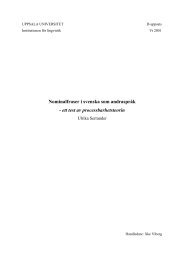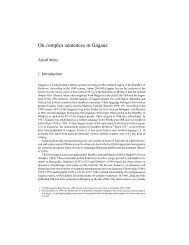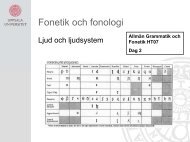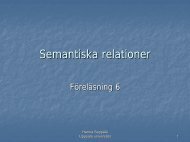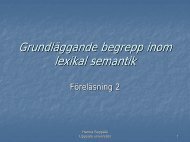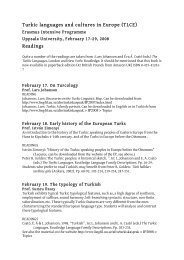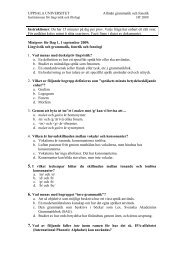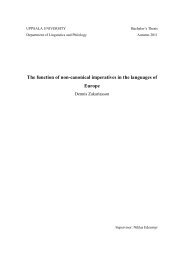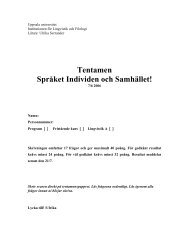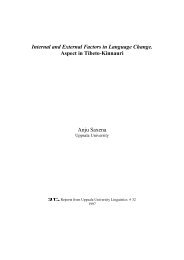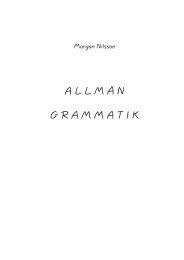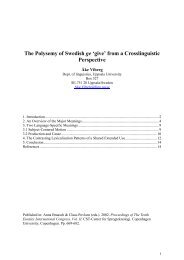komma - Institutionen för lingvistik och filologi - Uppsala universitet
komma - Institutionen för lingvistik och filologi - Uppsala universitet
komma - Institutionen för lingvistik och filologi - Uppsala universitet
You also want an ePaper? Increase the reach of your titles
YUMPU automatically turns print PDFs into web optimized ePapers that Google loves.
Abstract<br />
The present work aims to analyse the meaning of the Finnish verb tulla ‘come’. Questions<br />
which I try to answer are: what is the meaning of the Finnish verb tulla and can you find<br />
categories for describing it. Can you predict the Swedish translation of the verb tulla and if<br />
you can, how? What are the differences and similarities in using Finnish tulla ‘come’<br />
compared with using Swedish <strong>komma</strong> ‘come’? The material has been a corpus of 490 Finnish<br />
sentences with the verb tulla and its counterpart in Swedish translations. The material is only<br />
fiction and it may have an influence on the results. As a result I have found six categories for<br />
describing the meaning of the Finnish verb tulla in different contexts. These are Deictic<br />
Motion (concrete motion from A to B), Inchoative (change in state or action), Metaphor,<br />
Grammatical meaning (Future or Modal verb) and Unintentional action. I have found that to a<br />
certain degree it is possible to predict the Swedish translation of the Finnish verb tulla. For<br />
example if the meaning of the verb tulla is Deictic Motion is the translation in Swedish often<br />
<strong>komma</strong> ‘come’, if the meaning is Inchoativ is the translation bli ‘became’. The most important<br />
results are that the Finnish verb tulla ‘come’ has the more extended Inchoative meaning than<br />
the Swedish verb <strong>komma</strong> ‘come’ and that the meaning Modalverb (‘should’) can only the<br />
Finnish verb tulla get.<br />
2



